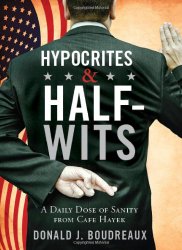
Erik Kimbrough, assistant professor of economics at Simon Fraser University, is an experimental economist. In this episode, we discuss his paper, “Norms Make Preferences Social” which he coauthored with Alexander Vostroknutov.
Experimental economics began with Vernon Smith’s double auction experiments in the 1950s. Smith wanted to test whether market participants could converge to the equilibrium prices and quantities predicted under neoclassical theory. He found that, indeed, the students in the lab did converge to the optimal prices and quantities, and experimental economics was born.
In the late 1970s and 1980s, the practice of testing game theory models in the lab caught on and became mainstream. One of these games, the ultimatum game, features two players dividing up a sum of money. The first play offers the second one an amount, and the second player can accept or reject. Rejection means neither player gets anything, so a (naive) game theorist would predict that player one will offer the smallest amount, a penny, and the second player will accept it. In reality, people often offer a 50-50 split, or 60-40. And when the person offering gets too greedy, say offering an 90-10 split, people routinely reject such offers.
What can explain this behaviour? To find out, experimentalists came up with an even simpler game: the dictator game. In this game (really not much of a game) one player decides how to divide up an amount of money between himself and another player. But even without the possibility of rejection, people still give others positive amounts.
What can explain this? Experimentalists believed that people were offering positive amounts to appear generous to the experimenters. In order to control for this, experimenters did double-blind studies, using code names and passing envelopes under doors to ensure participants that nobody would know if they kept the money for themselves. And yet people still shared positive amounts!
But how can we reconcile people giving away large portions of their money in a lab setting when they don’t give similarly large portions of their income in real life? Experimenters realized that the money in the lab wasn’t earned, so the participants may have conceived of it differently than money they felt they earned and deserved. So they had participants take a quiz, and awarded the right to be dictator to the highest scorer on the quiz.
Combining the double blind and earned income experimental designs, the experimenters were able to get 96% of people to keep the money for themselves.
One theory of why people share positive amounts is that people have preferences over payoff distributions. That is, they care about inequality. But this hypothesis is contradicted by the double blind and earned income experimental designs; neither of these affect the final distribution of payoffs, and yet they affect how much people offer in the dictator game.
Erik’s conjecture is that people offer, for instance, a 50-50 split because they are adhering to a fairness norm. He uses a game where people are instructed to wait at a stoplight, even though they are paid to cross a virtual street as quickly as possible.
Indeed, the people who wait at the light, those who have a strong preference for following the norm, are also more likely to offer a 50-50 split in the dictator game. Furthermore, when the norm-following individuals play a public goods game, they are able to maintain high contributions to the public good.
You can read more about Erik’s work at his personal website
Download this episode.
Subscribe to Economics Detective Radio on iTunes or Stitcher.
The post Experimental Economics, Norms, and Prosocial Behaviour with Erik Kimbrough appeared first on The Economics Detective.


![]() Don Boudreaux is a professor of economics at George Mason University. He blogs at Café Hayek. I invited him to discuss civil asset forfeiture on the podcast because of a conversation we had about it at a recent Mercatus Center colloquium.
Don Boudreaux is a professor of economics at George Mason University. He blogs at Café Hayek. I invited him to discuss civil asset forfeiture on the podcast because of a conversation we had about it at a recent Mercatus Center colloquium.
